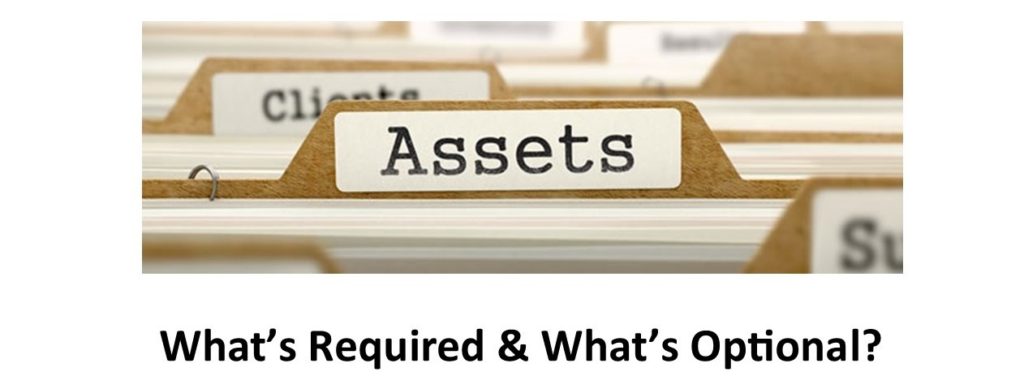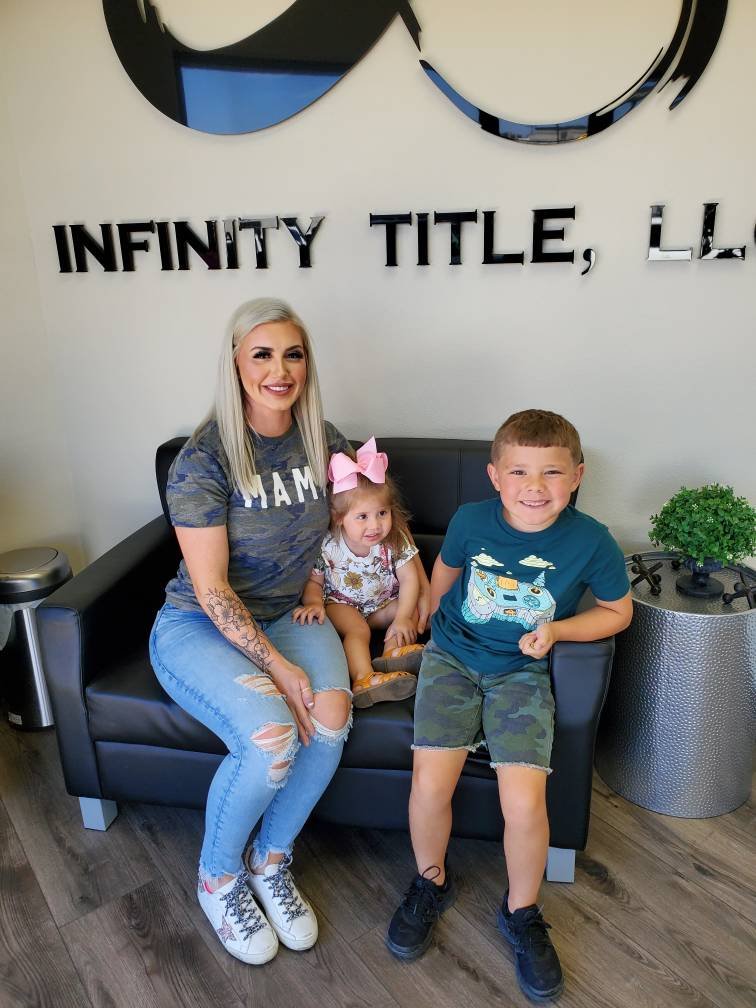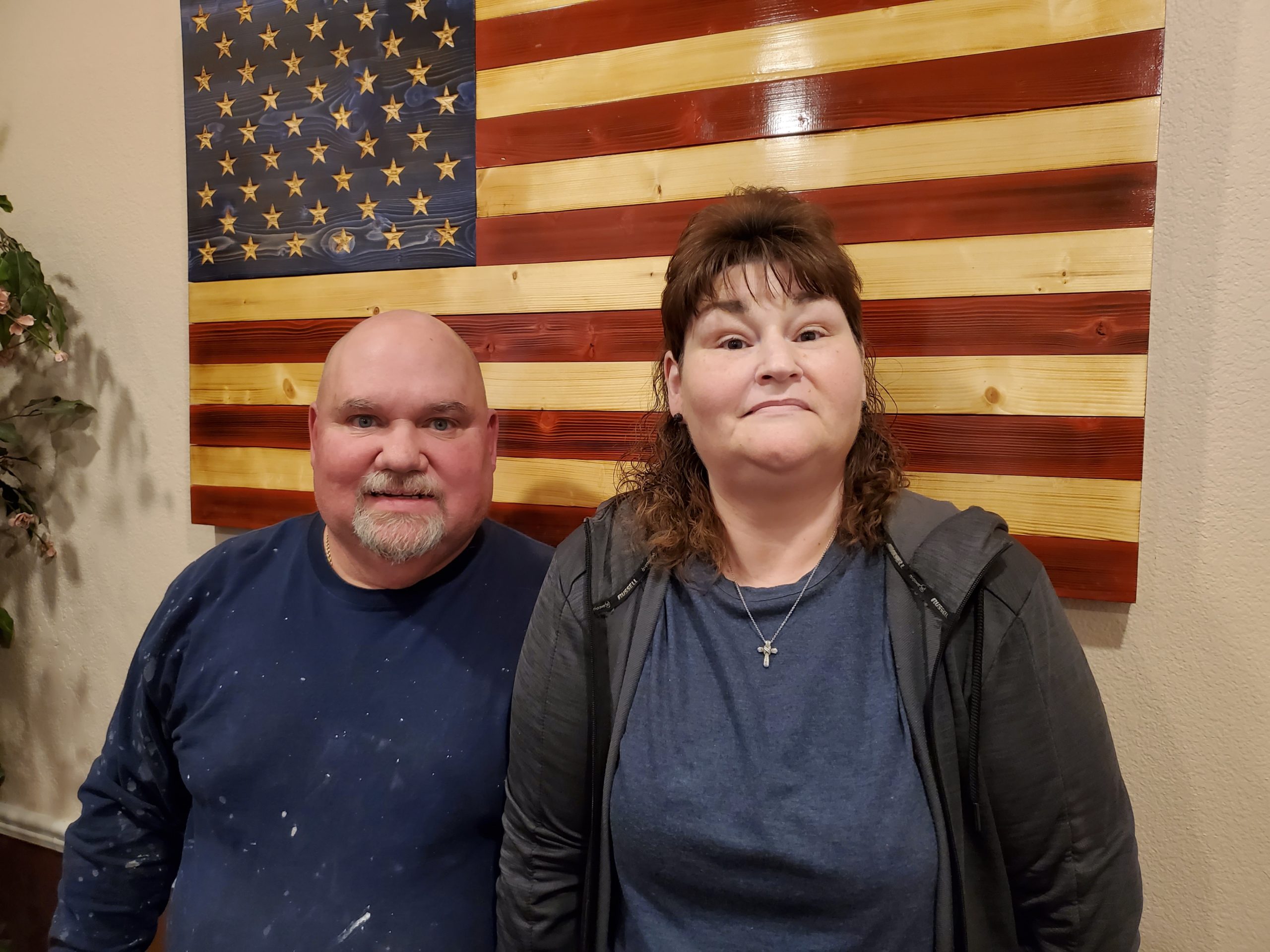
You should know from the start, that as a mortgage originator/broker, I’m going to ask you all kinds of questions that sound pretty nosy. I promise that I’m only asking for this information to help you. The more that I know, the stronger the case I can represent for you. It may feel as though I’m turning a spotlight on you, analyzing every detail about you like your job, and what you make there, your tax returns, and worst of all, now I want to see all of your bank statements, investments, and more. What is all this for and is it really necessary?
Many borrowers ask this question and it’s a good one. I’m digging around in your personal life, asking for all these documents and then, asking questions about the documents themselves. Where did this deposit come from? I see a transfer from this account, can you provide that statement? It can be frustrating, but this article will hopefully answer some of the questions on what assets are, why they are important to your loan file, and what you need to document them. I’ll also give some tips on what can be “the good, the bad and the ugly” so if you’re getting everything ready for a loan application in the future, you can have nice clean documents ready to go.
What are assets?
Assets are anything that you own that has value. It can be anything from money in your checking account, to items that you own with cash value like a home, investment property, etc. Assets that we typically use are checking, savings, and any bank (depository) accounts that you have. We will want to know about any investment accounts like your 401k, CD or money market accounts, IRA, etc. We are also going to need to discuss any property that you already own like a current primary residence, any investment properties, and any other real estate that you may currently own.
You are not required to use every asset that you own in the loan process. If you don’t plan on using some accounts to buy your home, they don’t need to be included on the application, UNLESS you transfer money from one account to another. We’ll get back to that later, but we should discuss what is available, so we can put forth an application that is strong and well documented. Knowing what is available for use can help that happen.
Why are assets needed?
When you apply for a loan, you are required to prove that you can repay it. You need to prove that you have funds available for any down payment and closing cost that might be necessary and lenders are also looking to see that you have the ability to save money and that you are responsible with it. The more we can show them that you have a capacity to repay, the less they will scrutinize you overall.
Why are my assets analyzed so carefully?
Before we talk about how assets are documented, sourced and seasoned, let’s talk about why where your money comes from matters. The short answer is that the mortgage industry has strict regulations to prevent mortgage fraud or being utilized for money laundering. Because originators and underwriters have severe penalties for not looking for this activity, we are required to document anything that isn’t documented plainly already. So, we ask because nobody wants to go to jail. It’s not that we are accusing YOU of anything, it’s that we MUST ask everyone or face the consequences. After a loan has funded it goes into an audit process looking for violations of the Patriot Act and other compliance laws so everyone working in this industry must follow the letter of the law.
What is sourcing?
You are required to provide 2 consecutive months of statements (or one quarterly statement) from any asset that we plan to use: checking, savings, retirement or investment accounts. Then I will look through these statements and look for anything that we need to “source.” Most banks state where deposits come from and if the deposits are payroll, the underwriters can plainly see that this money comes from money you’ve earned at your job. If the money comes from a transfer from one account to another, we will be required to show 2 months of that statement as well. However, if you have generic deposits from multiple checks or cash, then we will need to explain to underwriting where this money came from. Maybe you sold an item on Facebook, or you picked up groceries for mom and she gave you cash to repay you when you delivered. There are lots of reasons for those random deposits but if there are lots of them or your debt to income ratio is very tight, be prepared to explain. If these deposits make up more than 25% of your qualifying income it will be required whether the 25% comes from only one or multiple small ones. Underwriters must be sure that your statements are representations of your regular financial snapshot. If you have a sudden inflow of cash that is out of the ordinary, it needs to be treated as such. They are looking to document what a normal expectation of your financial picture is for repayment security purposes.
So the reason that we go through these statements together, and I ask all the many questions is: If I understand exactly what your statements mean, then I’m better armed to help you with any paperwork that might be needed. Your money is yours and I’m not judging how you spend it, or where it comes from, I just want to help you make sure that you are able to use it in the mortgage process and if we are unable to properly source it, it is backed out as if it doesn’t exist.
Why Cash isn’t King
I was raised to think “Cash is king” and you probably were too. This is the one area though, where heaps of cash, sock drawer money, and money piled in your mattress won’t help you. Cash on hand and cash deposits are the most difficult items to source. They require sales receipts and letters of explanation and even though I KNOW you are telling me the truth and you’ve been saving $200 from every check for the last two years, if we can’t PROVE where the money came from, you won’t be allowed to use it. That is where “seasoning” comes in. Sourcing as we discussed, is showing where the money comes from. Seasoning means that funds have been in the bank for a certain amount of time (usually 60 days.) So, if you are thinking about applying for a mortgage and the way you’ve been saving for it is to save actual CASH, you need to get that cash into the bank pronto! Large cash deposits are required to have at least 60 days seasoning (and some lenders require 90 days) so do yourself a favor and deposit that NOW. Then when we ask for two months of bank statements, that cash will already be there and there is no issue to document.
Other Asset Details
Account Ownership: Underwriters will look to make sure you are the owner of the accounts submitted. If you have a joint account with someone that isn’t also listed on the loan, we may need a letter saying that you have full access to the contents of the account.
Overdrafts: If you have overdrafts, they will require letters of explanation to explain how and why it occurred and may require even more documentation. One is a hurdle, but lots of them may mean we should regroup and season the account another two months to get past them. Underwriters are looking for good money management. Remember, their job is to make sure you can repay this debt. If you have chronic overdrafts, this will not work in your favor.
Regular Debits: As I mentioned earlier, how you spend your money is your business. We aren’t looking to see where you shop, how much junk food you buy or how much you spend on entertainment, though in extreme debt to income ratio situations, this CAN be important. Part of the underwriter’s job is to make sure you have good money management, but generally they don’t care about that either. However, what they will look for every time is regular unexplained payments. If you pay $470 every month on the 5th, and we see nothing in your listed liabilities with that amount, underwriters will likely ask for an explanation. Is that $470 a child support payment? Is it an undisclosed debt? Sometimes it’s a coincidence that we might need to document further, or it might be a liability, but an honest mistake, you thought that this bill would report on your credit, but it doesn’t or maybe it’s new. We just need to manually enter it because it will be required to be calculated if it turns out to be an actual debt.

The ideal Asset Situation
Are you reading this article because you are preparing for the future? If that’s the case, be kind to future you and make sure we have nice clean asset statements to work with. If you are saving for your down payment and closing costs, one idea would be to open a bank account just for this purpose, ideally one that won’t have a lot of deposit activity. Auto deposits are always better than manual deposits, because they are easier to source. Having your paycheck auto deposited into this account for a few months, while you prepare and withdrawing the funds manually to use in your regular day-to-day account would be ideal. Don’t transfer into your main account or we’ll be required to see that account as well. If one account has all the funds needed, we will never need to see the other accounts. As I mentioned before, I will likely ask you about them, in case you need reserves to strengthen your file, but if you have one account with as much money as possible, that will be the simplest solution. Be prepared to use THIS account for everything mortgage related (earnest money, inspections, appraisal, etc.) Of course, as mentioned, don’t make any large deposits that underwriters will need explanations for.
Depository Accounts:
We need at least one depository account (checking or savings) with enough money to meet cash to close requirements. (or a combination of accounts that will meet these requirements)
Documentation Needed: Most recent 2 months bank statements. Include ALL pages (even if blank)
401k/IRA/CD/Money Market Accounts
We only need these if you need to use them to show reserves, or if you are using them for your cash to close requirements. I will always ask about them, that way if you do need them, I will already know they are there.
Documentation Needed: These are usually quarterly statements. Again, we will need all pages of the statement (even if blank) and if you receive monthly statements, we will need two.
Real Estate Owned:
We will need your current mortgage statements on any property that you own. If you own property free and clear, let me know that too. It will come up in the underwriting process, so we will need to list it as an asset and account for any liability as well. ALL real estate owned should be documented, and any debt accounted for in the paperwork. What kind of property you own can also impact your loan type, so this is very important to disclose so there aren’t surprises later. If the property you own is listed for sale because you are buying another property, I need to know this too. If you’ve recently sold a property or if it’s under contract and about to sell, this is also important.
Documentation Needed:
- most current mortgage statement on any property you own
- Closing disclosure on the sale of property (for recently sold properties) or in some cases we may need this disclosure on one that is about to sell.
What about cars, or other assets that I own?
Generally, we won’t need to know about assets like cars, collectibles, artwork, etc. When I ask about your assets, I’m looking for accounts that have statements and real estate property that must be accounted for. There are specific situations where other assets may come into play (if liquidity is an option) but it is rare.







Great article! We will be linking to this great article on our site. Keep up the great writing. Joshua Brummet